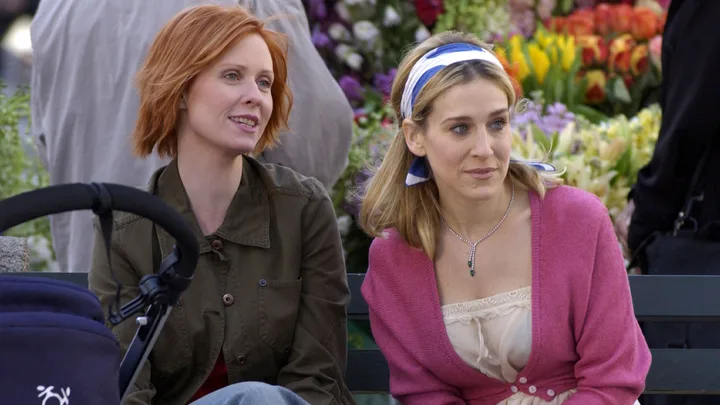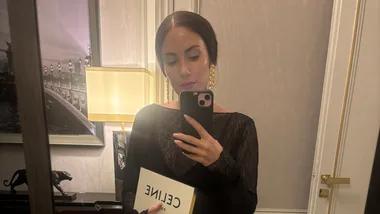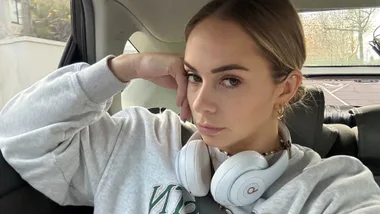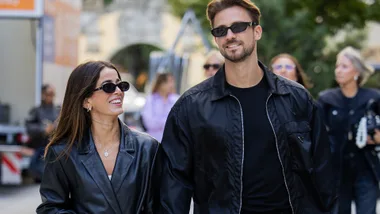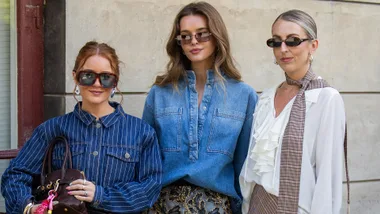The message landed in my inbox late one Tuesday afternoon:
“When I catch up with friends who have young kids, I often leave feeling a bit isolated. I love hearing about their lives and children, but our conversations end up revolving around them, with little interest in what’s happening in my life. As the single, childless friend, how can I handle this — and should I bring it up with them?”
It stopped me mid-scroll. Because, honestly? Same.
These days, more and more of my catch-ups look like this: a coffee date or brunch that’s really just an elaborate playdate, with me wedged between a pram and a highchair, trying to squeeze in a sentence between requests for babyccinos and emergency nappy changes. I adore my friends (their children even more), and I truly do love hearing about their kids, but there’s a subtle ache in leaving a catch-up without having shared much about my own life at all.
“It’s one of those very specific feelings — being surrounded by people you love, but still walking away feeling a little invisible.”
And it’s not something we often talk about out loud, maybe because it feels a little… ungrateful? Selfish? Bratty? I’m not sure.
But here’s the truth: friendships do shift as we get older. And they should. We all move through different seasons of life — new jobs, marriages, babies, moves overseas, breakups, health changes — and those seasons inevitably change how we show up for each other.
The thing is, when those seasons aren’t in sync, the gap between us can start to feel a little wider. Not unbridgeable, but enough to make connection trickier. And when it comes to friends having babies, that shift can be particularly sharp.
The Motherhood Tunnel Vision
When a baby enters the picture, it’s like the rest of the world narrows to a pinpoint. Your friends aren’t doing this on purpose. They’re not trying to exclude you, or ignore your life. They’re just deep in the trenches, surviving on little sleep, juggling endless to-do lists, and adjusting to a brand-new identity.
“You want to support and be there for your friend, but you also don’t want to lose the connection that made the friendship mean so much to you in the first place.”
But while that’s understandable, it doesn’t make your experience in the friendship any less real. Your milestones, your stories, your struggles — they still matter. And it’s okay to want space for them, even if your friend’s life looks wildly different right now.
The Slow Drift
I’ve noticed that these shifts often happen quietly. One day, you’re talking for hours about everything from work gossip to dating disasters. Then, gradually, the topics shrink to nap schedules and preschool applications, and your role morphs into The Listener.
There’s nothing wrong with listening — it’s one of the most generous things we can do for a friend – but when it becomes the only role you’re playing, resentment can quietly grow. And resentment is friendship poison.
This is the part that’s hard to say out loud. Because it’s not that you resent your friend having children. You just miss the friendship you used to have, and it’s confronting to realise it might never fully return.
So… Do You Say Something?
My advice? If the friendship matters to you — yes. Gently, and with love.
These conversations don’t need to be confrontational. In fact, they’re often more effective when they come from a place of care, rather than complaint. You’re not accusing your friend of being self-absorbed; you’re letting them know how much you value the connection you share, and that you’d love to keep it balanced.
It could be as simple as saying:
“Hey, I love seeing you and the kids, and I really enjoy hearing about what you’re all up to — but I sometimes leave our catch ups feeling a bit unseen. I’d love to share more of what’s going on in my world too.”
This frames it as a desire for deeper connection, not an attack. It’s about what you need, not what they’re doing “wrong”.
Adjusting Expectations
That said, it’s also worth recognising that your friendship might never look exactly the way it did before. And that’s okay. It doesn’t mean it’s less valuable; it just means it needs to evolve.
Maybe that looks like shorter, more frequent catch-ups without the kids in tow. Or sending voice notes to each other during the week when things pop up that you’d normally chat about over a few rosés. Or even expanding your circle so you have a mix of friends in different life stages, so one group doesn’t carry the entire weight of your social needs.
“The goal isn’t to replace what’s been lost, but to find new ways to connect that work for both of you in this new season.”
Keeping Perspective (And Compassion)
This can be a vulnerable conversation to have, and it requires compassion on both sides. For you, compassion means understanding that your friend is operating in survival mode, and might not have the bandwidth to notice they’ve been dominating the conversation.
For them, compassion means recognising that while their world has changed, yours is still spinning too—– with its own joys, challenges, and milestones that deserve space.
Friendship isn’t about matching life stages perfectly; it’s about making room for each other in whatever stage you’re in.
My Personal Takeaway
When my follower sent me that message, it was a reminder that these feelings — of disconnection, of missing the “old” version of a friendship — are more common than we admit. And that it’s not selfish to want a little more balance in your relationships.
I’ve been on both sides of this equation. I’ve been the friend with the busy, consuming life, not realising how little I was asking about someone else’s. And I’ve been the friend quietly nursing that ache on the drive home, wondering if anyone noticed I barely said a word.
“Friendships don’t survive on love alone — they survive on attention.”
What I’ve learned is that friendships don’t survive on love alone — they survive on attention. On the intentional act of checking in, asking questions, and making space for each other’s lives, even when they look completely different.
So if you’re the single, childless friend feeling left out, here’s your permission slip to speak up. Not with blame, but with a gentle reminder: “I’m still here, too.”
Because you are. And the people who truly love you will want to make sure you feel that way.
